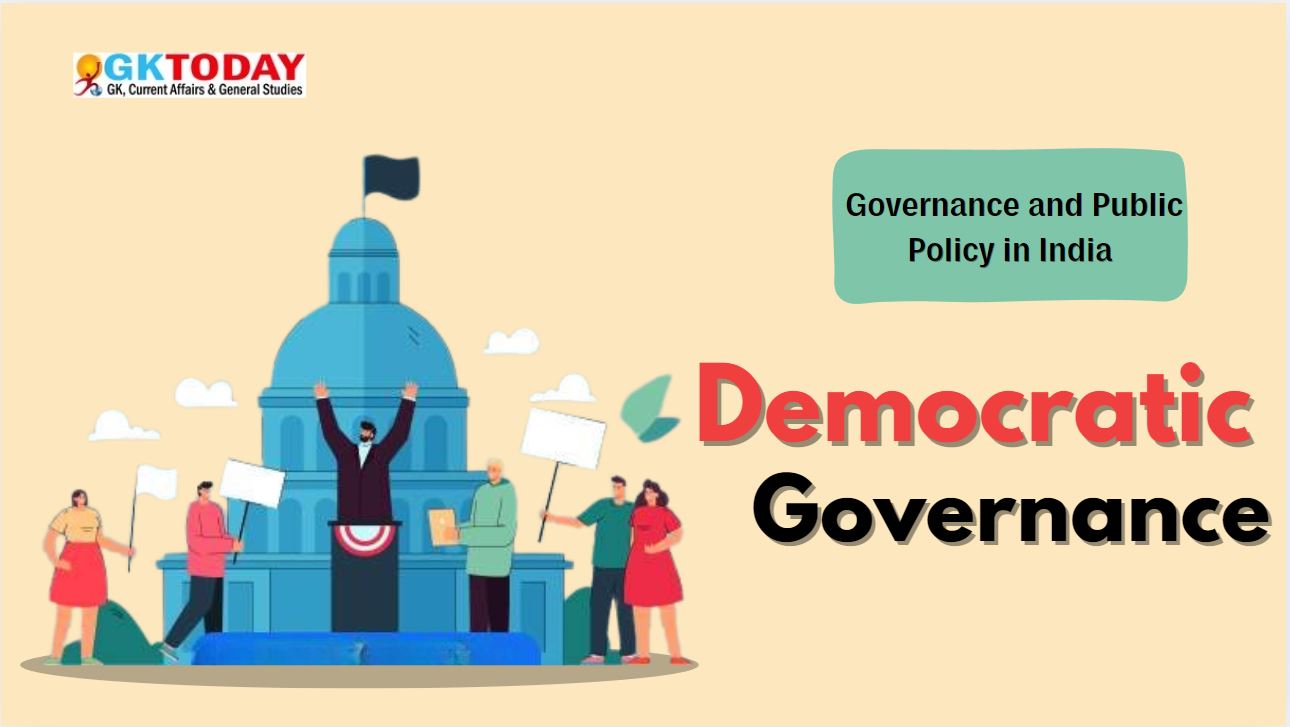Governance, Good Governance, and Democratic Governance – UGC-NTA NET Political Science
Governance is important aspect of political science. It encompasses the processes, institutions, and actors involved in making and implementing decisions.
Definition of Governance
Governance refers to the processes of decision-making and the implementation of those decisions. It involves multiple components that shape how societies are managed.
Key Components of Governance
- Institutions: These include government bodies, civil society, and the private sector.
- Processes: This encompasses policy formulation, implementation, and evaluation.
- Actors: Key players include politicians, bureaucrats, citizens, and NGOs.
Types of Governance
Governance can be classified into various types, each serving different purposes.
Corporate Governance
Corporate governance focuses on the management of companies. It ensures accountability and transparency in business practices.
Global Governance
Global governance involves international cooperation and regulation. It addresses global issues like climate change and trade.
E-Governance
E-governance uses technology to enhance public administration. It improves service delivery and citizen engagement.
Definition of Good Governance
Good governance is the effective, efficient, and ethical management of public resources and affairs. It aims to improve the quality of life for citizens.
Principles of Good Governance
- Transparency: Government actions and decisions should be open and clear.
- Accountability: Public officials must be held responsible for their actions.
- Rule of Law: Laws must apply equally to all individuals.
- Participation: Citizens should be involved in decision-making processes.
- Responsiveness: Governments should respond timely to citizens’ needs.
- Equity and Inclusiveness: All groups should have opportunities to improve their well-being.
- Effectiveness and Efficiency: Resources must be used optimally to achieve desired outcomes.
Indicators of Good Governance
Indicators help assess the quality of governance. Key indicators include:
- Quality of public services.
- Public sector performance.
- Citizen satisfaction and trust in government.
Definition of Democratic Governance
Democratic governance is based on democratic principles, emphasising participation, representation, and accountability. It is essential for a functioning democracy.
Features of Democratic Governance
- Free and Fair Elections: Elections must reflect the will of the people.
- Political Pluralism: Multiple political parties and ideologies should exist.
- Civil Liberties: Individual rights and freedoms must be protected.
- Rule of Law: Legal equality and justice must be upheld.
- Active Civil Society: Citizens should engage in public life and advocacy.
Mechanisms of Democratic Governance
Mechanisms ensure the functioning of democratic governance.
Legislative Framework
Laws govern the political process. They ensure order and justice.
Judicial Independence
Courts must operate free from political influence. This ensures fair trials and justice.
Media Freedom
Independent media informs and educates the public. It plays a critical role in democracy.
Decentralisation
Decentralisation distributes authority to local governments. This enhances local governance and service delivery.
Interrelationship between Governance, Good Governance, and Democratic Governance
Good governance serves as a foundation for democratic governance. Citizen engagement is vital in both frameworks. Institutions play role in promoting good governance within a democratic context.
Challenges to Achieving Good and Democratic Governance
Several challenges hinder effective governance.
- Corruption: This undermines trust in government.
- Inefficiency: Bureaucratic delays can frustrate citizens.
- Lack of Accountability: Without mechanisms, officials may act without consequence.
Global Perspectives on Governance
Governance is viewed differently across the globe.
United Nations Development Programme (UNDP)
The UNDP defines governance as the exercise of authority in the management of a country’s resources.
World Bank
The World Bank focuses on governance as a critical factor for development. It emphasizes the need for sound policies and institutions.
Comparative Governance Models
Governance models vary between the West and the East. Western models often emphasize individual rights, while Eastern models may focus on collective well-being.
Challenges to Governance in India
India faces unique governance challenges.
- Bureaucratic Inefficiency: Slow processes hinder effective governance.
- Political Instability: Frequent changes in leadership affect continuity.
- Socio-economic Disparities: These disparities limit citizen participation.
- Globalisation: It impacts traditional governance structures.
Reforms for Enhancing Governance
Reforms are essential for improving governance in India.
Administrative Reforms
The Right to Information Act promotes transparency. E-governance initiatives enhance service delivery.
Electoral Reforms
Strengthening the electoral process reduces malpractices. This encourages trust in democratic institutions.
Decentralisation
Empowering local self-governments improves service delivery. It allows for more responsive governance. Thus, understanding governance, good governance, and democratic governance is vital for students of political science. These concepts form the backbone of effective public policy and administration. By grasping these ideas, students can better appreciate the complexities of governance in India and beyond.





